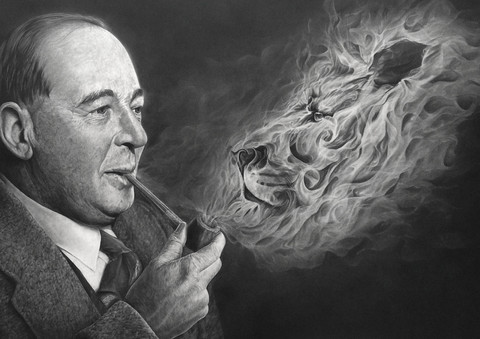Workshops
From time to time I have been asked to lead not a meditative retreat but a more discursive and informational short course or workshop for a church or college or seminary or school for spiritual directors.
These are described here to suggest possibilities for personal or small-group reading or growth in prayer.
What Does It Mean to Be Human? Novels That Illumine the Mystery of Incarnation
 Philosophy, religion, science, and law all struggle with the question of what we really mean when we call ourselves human—or decide, with terrible consequences, that others are less than human.
Philosophy, religion, science, and law all struggle with the question of what we really mean when we call ourselves human—or decide, with terrible consequences, that others are less than human.
Christianity has always maintained that our humanity derives from our being created in the image and likeness of God. Saint Irenaeus declared in the 2nd century that “the glory of God is a human being fully alive”—but what does that mean?
Does our humanity depend on our capacity for language, or for love? Is it defined by intellect, memory, or will? What of those who suffer from cognitive impairment or madness, autism, or Alzheimer’s?
What are the implications of the Incarnation of God in Christ for our human life? What do we mean when we say that Jesus was “fully human”?
This course explores those questions and more as presented in recent works of fiction, including Never Let Me Go by Kazuo Ishiguro, The Curious Incident of the Dog in the Night-Time by Mark Haddon, The Speed of Dark by Elizabeth Moon, The Song of Achilles by Madeline Miller, Still Alice by Lisa Genova, and The Wolf Hunt by Gillian Bradshaw.
C.S. Lewis’ Baptized Imagination: Past Watchful Dragons
“Concepts create idols; only wonder comprehends anything.”
~Gregory of Nyssa

C.S. Lewis was perhaps the best-known defender of the Christian faith in the English-speaking world in the second half of the 20th century. An Oxford don and formidable medieval scholar, he wrote prolifically on matters of Christian theology and doctrine. Also a keen debater, he delighted in his nonfiction apologetics in polemic and conceptual rigor.
In his fiction however, particularly in the Chronicles of Narnia, which he wrote for children, he seems to have allowed God to “creep past the watchful dragons” that guarded his imagination, discovering and offering to the reader a deeper, wider sense of wonder: a more intuitive appropriation of the mysteries.
This course explores the way situation and character in Lewis’ fiction (the Narnia Chronicles, the Perelandra trilogy, and Till We Have Faces) not only explicate but model a God-ward life.
Specifically, we will examine Lewis’ treatment of themes of transformation and community, sacramental theology and the meaning of magic, as well as the nature and practice of prayer.
Poetry, Prayer and the Life of the Spirit: “Soul in Paraphrase, Heart in Pilgrimage”
 What do the practices of poetry and prayer and spiritual formation have in common? They are rooted in the same ground: the essentially contemplative recognition of silence, listening, waiting, and a lived experience and disciplined expression of the mystery of love.
What do the practices of poetry and prayer and spiritual formation have in common? They are rooted in the same ground: the essentially contemplative recognition of silence, listening, waiting, and a lived experience and disciplined expression of the mystery of love.
This class explores themes (common to both poetry and prayer) of awe and gratitude, joy and sorrow, forgiveness and hope, consolation and desolation. We will read and ponder poems by 20th century poets Billy Collins, Mary Oliver, Denise Levertov, R.S. Thomas, Jessica Powers and Anne Porter as well as works by George Herbert (from whose poem Prayer the course takes its title) Gerard Manley Hopkins, John Donne and—in translation—Dante, Rilke, and Rumi.
Practical Wisdom for Spiritual Directors: Ways Old and New
 Intended for spiritual directors, this workshop takes its shape from two elements of Benedictine spirituality: focusing in the morning session on aspects of direction that partake of the Benedictine value of stability, and in the afternoon on that of balance.
Intended for spiritual directors, this workshop takes its shape from two elements of Benedictine spirituality: focusing in the morning session on aspects of direction that partake of the Benedictine value of stability, and in the afternoon on that of balance.
From the vantage point of stability, we will examine the primary importance for us as directors of staying rooted and grounded in our own relationship with God. (“Apart from me,” Jesus reminds us, “you can do nothing.”) We will also revisit some of the foundational elements of the ministry of direction in the light of new insights from other disciplines, including social work, depth psychology, and pastoral counseling.
The afternoon session will explore ways to discover a dynamic balance in our work, discerning (for example) when and how we might safely depart from the rigid rules we may have learned in our training to more flexibly meet certain situations that may arise.
This session will also deal with practical considerations such as how and when one may need to end a direction relationship, how to discharge the stress and trauma we may take on, how to find supervision in isolated circumstances.